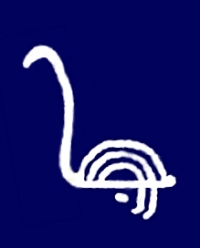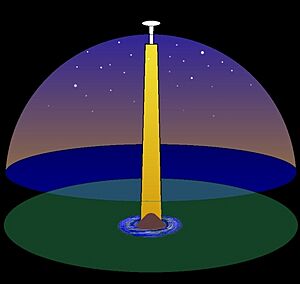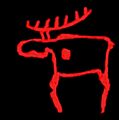Finnish paganism facts for kids
Finnish paganism was an old religion practiced in Finland and Karelia. This was before most Finnish people became Christian. Finnish paganism is similar to the old religions of Scandinavia and the Baltic countries. People who followed this religion believed in many gods and spirits.
Contents
Spirits and Gods
Finnish paganism was an animistic religion. This means people believed that nature was full of many spirits. These spirits lived in trees, rocks, rivers, and even animals. The most powerful spirits were known as gods.
Important Gods
Some of the most important gods had special names. Ukko was the god of the sky and thunder. Tapio was the god of the forest. Ahti was the god of water. There were also many other spirits, each with their own names and roles.
Shamans and Magic
A Shaman was a very wise person in the community. They were believed to have special powers and could perform magic. Shamans could talk to spirits. They often helped people who were sick or asked spirits to protect their community. Sometimes, they would even try to bring back a lost part of a person's soul.
The Soul
People believed that a human's soul was made of different parts. If one part of a person's soul left their body, they wouldn't die. Instead, they would become very ill. A Shaman could journey to the spirit world to find the lost soul part and bring it back.
Sacred Animals and Places
Certain animals and places were considered very special and holy. People treated them with great respect.
The Bear
The Bear was a very holy animal. If a bear was hunted, people held a special celebration called Peijainen. This was a big party with food and drinks. The purpose was to make the bear's spirit happy. People believed a happy bear spirit would be reborn as another bear. This way, people could continue to hunt bears for food in the future.
The Swan
The swan was also a very holy bird. People believed that if someone killed a swan, that person would die soon after. This belief helped protect these beautiful birds.
Holy Places
Some trees, stones, and even whole forests were considered holy. These places were often used for offerings to gods or spirits. An offering was a gift meant to make the spirit happy. People hoped that a happy spirit would then help them. For example, a fisherman might offer a gift to the spirit of the sea. They hoped this would bring a good catch of fish. Later, offerings were often small things like money, flowers, pieces of silver, alcohol, or food.
The World and the Afterlife
The Finns had their own ideas about how the world was made. They believed the Earth was flat, like a disc. Above the Earth was the sky-dome, which looked like an upside-down pot.
The World Pillar
In the middle of the Earth, there was a giant pillar that held up the sky. This pillar stopped the sky from falling down. The North Star was seen as a nail at the very top of this pillar.
The Land of the Dead
The land of the dead, called Tuonela, was believed to be under the Earth. The way to Tuonela was at the bottom of the world pillar. The pillar's spinning movement created a huge whirl of water called Kinahmi. This whirlpool was thought to be the entrance to Tuonela.
People hoped their dead relatives would go to Tuonela. They didn't like the idea of ghosts staying in the living world. However, sometimes people would ask their dead relatives for help. Shamans would even travel to Tuonela to speak with the souls there.
Images for kids
-
An ancient Finnish cup-stone used for votive offerings in Hartola.
-
Lemminkäisen äiti by Akseli Gallen-Kallela. A depiction of the underworld, Tuonela, from a myth found in the Kalevala.
 | Audre Lorde |
 | John Berry Meachum |
 | Ferdinand Lee Barnett |








